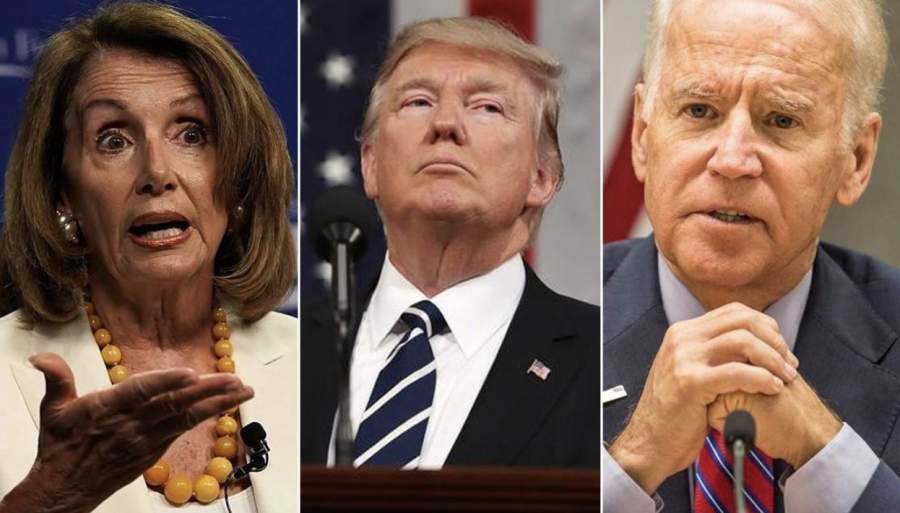The Question of Impeachment: It Actually Is That Simple
On Tuesday, September 24, Nancy Pelosi (D-CA), Speaker of the U.S. House of Representatives and third in line to the presidency, announced that the House was launching an official impeachment inquiry into President Donald Trump, accusing him of violating his oath of office. Predictably, the announcement unleashed a Twitter storm in which Trump has gone from calling the proceedings a witch hunt and presidential harassment – in all caps, of course – to suggesting that Representative Adam Schiff, Chair of the House Intelligence Committee, who first made public the whistleblower complaint at the center of the President’s latest troubles, should be tried for treason. He has also claimed that the Democrats have been desperately trying to impeach him from day one, which is simply not true. Trump’s assertions notwithstanding, Democrats have not been trying to impeach him since he took office, nor are they eager to do so now. On the contrary, Speaker Pelosi has endured much criticism for refusing to impeach the President on multiple occasions when prominent legislators and legal analysts strongly believed there was enough evidence to warrant an inquiry into Trump’s conduct. However, Trump seems to have been practically daring House Democrats to impeach him.
On August 12, a U.S. intelligence community official filed a whistleblower complaint alleging that President Trump was “using the power of his office to solicit interference from a foreign country in the 2020 U.S. election.” The partial transcript of the complaint was released to the public on September 26. It details efforts by Trump and his personal lawyer Rudy Giuliani to pressure the Ukrainian President to investigate Democratic presidential candidate Joe Biden and his son Hunter in what appears to be a quid pro quo – a favor granted in exchange for something – to release over $300 million in military aid to Ukraine, which the White House was allegedly withholding as leverage. After these revelations surfaced, the President went on national television and virtually confessed, even adding that not only Ukraine should investigate the Bidens, but that China should do so as well. In doing so, Trump left Speaker Pelosi no choice but to start a formal impeachment inquiry.
In the past, Pelosi has cited an array of reasons, all of them valid, to explain her reluctance to impeach the President as well as her preference for focusing on defeating him by a large margin in the 2020 presidential election. Her strongest justification was, perhaps, that impeachment is simply not good for the country. This, as Brazilians well know, is true, at least in the short run. Regardless of the final outcome, the long and arduous process of attempting to remove a president from office invariably takes a toll on any country, destabilizing it politically and economically, exacerbating its domestic polarization, and creating potentially devastating uncertainty. In the months leading to the ousting of President Dilma Rousseff – December of 2015 to August of 2016 – the Brazilian market (currency, stocks, government bonds, etc.) suffered, as the world waited to see how the impeachment proceedings unfolded. Moreover, the country was temporarily paralyzed in many ways, since the executive branch was not able to effectively govern and all other matters before Congress were naturally set aside until after Vice President Michel Temer was sworn in as president.
There are also strategic considerations Pelosi has addressed both publicly and privately in leaked discussions with fellow democratic leaders. When a matter as serious as charging a sitting president with misconduct is at stake, decision-makers inevitably ponder the potential backlash of taking such an action. In the case of Trump, they are dealing with a president known for spinning anything in his favor, for turning the tables on his critics and opponents, and for playing the victim of the press. They are also dealing with someone who famously proclaimed while running for president in 2016, “I could stand in the middle of Fifth Avenue and shoot somebody and wouldn’t lose any voters, okay?” Thus, Pelosi’s caution is understandable.
That said, all those considerations, while compelling, should not have much bearing on the decision to impeach the President. The only question that Congress should contemplate right now is whether Trump’s latest actions constitute an impeachable offense. The Constitution stipulates that Congress can vote to remove presidents when deemed that they have committed “treason, bribery, or other high crimes and misdemeanors.” Further, the term high crimes apply to abuse of power by high-level officials and do not necessarily refer to crimes that regular citizens would be charged within a court of law. Therefore, if their inquiry yields sufficient evidence to support the allegation that the President has acted in violation of his oath of office, the members of the House of Representatives must pass articles of impeachment. Failing to do so would render without basis the system of checks and balances that having three separate branches of government is meant to guarantee in order to protect the people from an authoritarian leader. There is no way around it. As Speaker Pelosi said in her televised announcement, Mr. Trump “must be held accountable — no one is above the law.”
Sources: The New York Times, CNN, The Huffington Post, The Atlantic, The Washington Post, Politico, Rolling Stone

This is Ale’s fourth and final year writing for The Talon, for which he is now the Art Editor. He started the second semester of 9th grade – his first...










